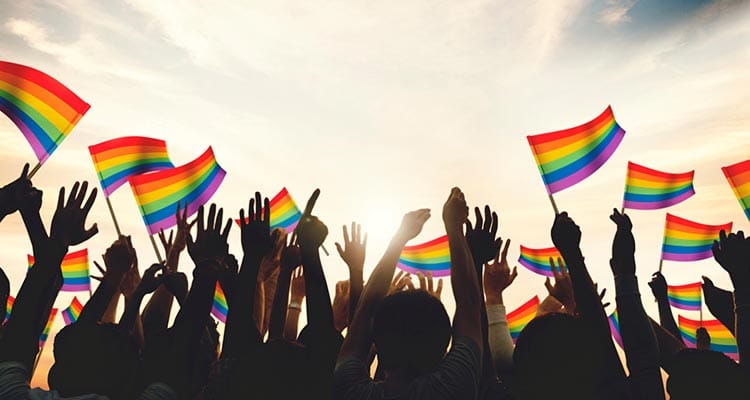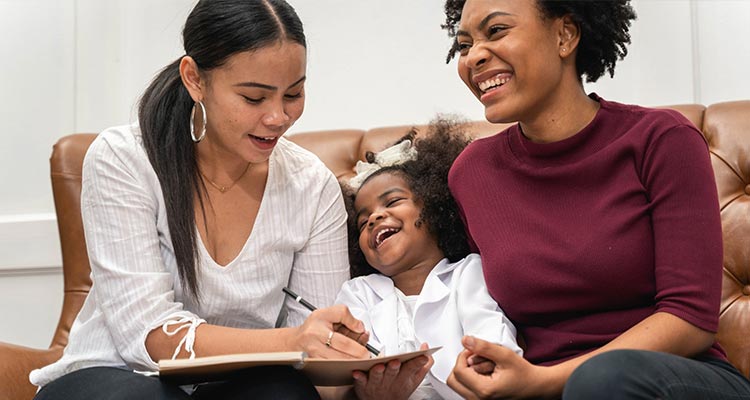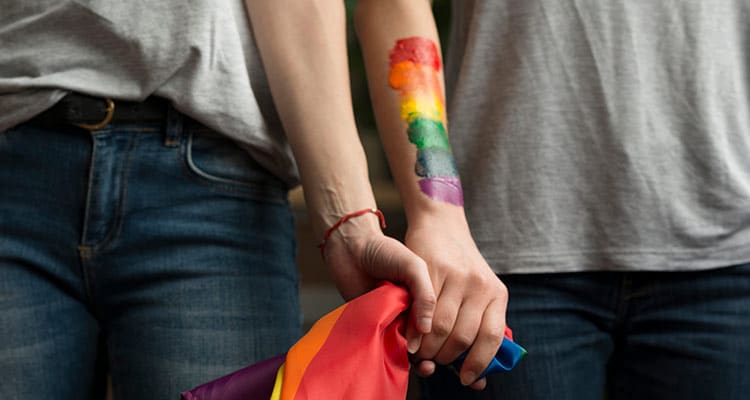So, how far have we come in that pursuit and how long before we can claim that LGBTQ rights in India are on par with that of its other citizens? In a one-on-one interview, Mumbai-based lawyer and LGBTQ activist Usha Andeshwar, tells us about the rights the LGBTQ community enjoys and the ones they should have in the future.
LGBTQ Legal Rights For Marriage and Relationships
When we talk about equality for same-sex relationships or same-sex marriage in India, the question of legal sanctions looms just as large as that of social acceptance. One cannot exist without the other. Granting the LGBTQ community legal rights to marry, cohabitate, raise children, and putting in place laws to protect them against discrimination and harassment at the workplace and in public space, are some of the basic steps that can act as a catalyst for promoting social acceptance and reducing stigma related to sexuality. A much-needed step to make coming out of the closet easier for LGBTQ people in India. How well do the LGBTQ rights in India fare on this count? Let’s hear an expert’s views for better perspective:
1. Taiwan became the first Asian country to legalize same-sex marriages. Does it have an impact on India?
Not so long ago, India saw the decriminalization of Article 377, so that can be seen as a first step – no matter how small – toward a future where same-sex marriage in India would have the sanction of the law. However, getting the same-sex marital right will take time. Our culture and societal fabric are different from that of Taiwan and other Asian countries.
2. Could you elaborate on the cultural differences between Taiwan and India?
India is a multi-lingual, multi-cultural, multi-religious, multi-ethnic country. Taiwan mainly comprises Buddhist and Christian populations, unlike India where we have Hindus, Muslims, Christians, Jains and several other smaller religions and clans – all of whom have different perspectives and take on homosexuality. So LGBTQ legal marriage would certainly take some time in India.
3. Do you think the social or financial status of a person in India plays a role in how they choose to come out, or how open they are about their sexuality?
Yes, it plays a very major role. Even the educational background of a person matters a lot. The Times of India published eminent Mumbai-based oncologist Dr Prasad Dandekar’s coming out as gay on the first page. However, when someone from lower economic strata comes out as homosexual or transgender, they might be disowned by their families or face a certain amount of stigma from the residents of the locality they reside in. Unless one has a strong financial background, be it in an urban or rural area of the country, it’s difficult to come out about one’s sexuality. The acceptance rate is still higher in the urban areas compared to the rural ones because the urban population is, not surprisingly, more educated and has better exposed as compared to their rural counterparts.
4. How far has the LGBTQ movement progressed in India?
We have come a long way since we started the LGBTQ revolution. The decriminalization of same-sex relationships is a testament to the fact. Before this, many people were scared to even come out about their sexuality and partners. That said, only passing the laws is never enough, practical implementation is needed to make society more aware of people having an alternative sexual orientation.
5. What are the LGBTQ legal rights in India right now?
Right now in India, the law is very clear about LGBTQ legal rights. If they are dating, they are allowed to have sex relationships in private. It’s about two consenting adults who are willing to spend time with each other in private. Again, if they do something in public, it might be considered an offense under provisions such as obscenity or public nuisance. If two adults of the same sex are holding hands or kissing in public, then they will be considered liable for their actions. Earlier, even in private, they faced the risk of arrest or extortion, mostly by the police. This has definitely changed now. But even today, legal sanction for same-sex marriage in India remains a distant dream. The same holds for the adoption rights of same-sex couples. People in same-sex relationships also don’t have the same inheritance rights as their heterosexual counterparts. Even if a couple has been living together for years, one partner doesn’t automatically inherit the other’s assets upon their demise, unless a will to that effect has been executed or the assets are jointly owned and nomination specified.
6. What are the adoption laws for single members of the LGBTQ community, or homosexual couples who have been living together?
Adoption laws in India have been strict from the very beginning, even for heterosexual couples or individuals. They are even more so when it comes to people from the LGBTQ community. When a same-sex couple wants to adopt a child in India, a lot of factors come into play. Many celebrities, homosexuals like Karan Johar and Tushaar Kapoor have gone for surrogacy, a more recent example being Ekta Kapoor. But even the surrogacy laws are stricter now in India, following many instances of Western people coming to India resulting in the development of surrogacy tourism here. Even in the case of same-sex couples in India, there is no legal validity for adopting a child. If a single man or a single woman goes for adoption, they may have better chances with the procedure. Right now, there are no marriage or adoption laws in India for same-sex couples. There is no negative law saying same-sex marriage in India cannot happen. However, on the flip side, there is no positive law in India too saying that it can happen.
7. So, if a same-sex couple goes to the Marriage Registrar’s office to get married, would they be turned down?
There have been many instances of same-sex couples getting married, but how many of them have actually approached the court and got the legal recognition they deserve? There is no valid marriage registration which has happened till now, even though there are famous personalities like Prasad Dandekar and his partner, who have been living together for long, as well as numerous other same-sex couples who have been living the life of a married couple. In short, so far, there is no LGBTQ legal marriage recognition in our country.
8. How long do you think it will take for same-sex couples to get marriage or adoption rights?
It will take a minimum of 10 years, maybe even more, for any significant legal change to be implemented for LGBTQ legal marriage and adoption rights. The activism of the LGBTQ community started in India in 1994, with the advent of the Humsafar Trust, which was the first MSM Organisation to cover this topic. With the 2018 judgment, on decriminalization of Section 377, we have come a long way but it has taken us more than 25 years to get here, and we still have a long way to go. A lot depends on political ideologies. The judgment has been passed by the judiciary, however, I don’t know how much longer it will take for it to be implemented in the Parliament in a proper manner. Even the Rights of Transgender Persons Bill was debated again and again before it was finally passed by the Rajya Sabha in 2015 and introduced in the Lok Sabha in 2016. The Bill officially recognizes transgender marriage and members of the transgender community as brides.
9. What kind of support do the LGBTQ people get from their parents and family?
I know of a case of a lesbian couple, where one girl was taken abroad by her parents for treatment and cure of her condition – homosexuality. They filed a police complaint and harassment charges against the other girl, her partner. She was falsely framed for prostitution and they said she was trying to push their daughter into the sex trade. Imagine the situation of the partner, who is being called into the local police station by the police and asked if she is a prostitute in the nearby area. The police understand who is a transgender person but their understanding of lesbians or bisexuals is very limited. Laws do support the cause of the LGBTQ people seeking equality and acceptance in society. However, just passing laws is certainly not enough. We need to change as a society too and be more inclusive to the millions of LGBTQ people in India and make them a part of the mainstream culture.





